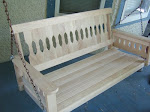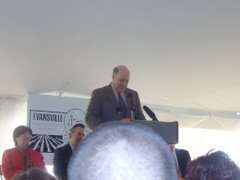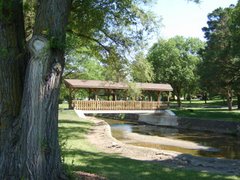Click on the post for a discussion of what one blog wants Northfield to be----The issues are familiar. Enjoy.
Here is a portion of the article. Click on the post for the entire article with pictures:
"The second thing I want is to increase public safety, and make it possible for residents to have meaningful and realistic choices about how much they drive, why, and where. This means: Setting up our road/path/sidewalk connections so that non-motorized transportation can be practical and utilitarian, not just recreational.
Since it builds a stronger community if people can work here, as well as live and play here, I’d also like to see policies implemented that support and encourage the growth and development of businesses in town which are financially healthy and pay a living wage with benefits to full-time year-round employees. (This is certainly possible, and isn’t pie-in-the-sky. I’m talking businesses of 10-50 employees. There are several possible approaches to accomplishing this goal. This would be a good topic for future discussion - whether economic hunting or economic gardening is a better model for Northfield.)
If we grew a decent employment base in Northfield:
Commuting would decrease, thus saving family $$ and reducing carbon emissions
We wouldn’t have 40% of our population leaving town for 10 hours out of every day, doing their working, shopping, eating, and primary social connecting elsewhere
Taxes paid on business property would provide a net gain for the City, i.e. city receives more in commerical taxes than it costs to provide the property with infrastructure and services. (Residential is exactly the opposite. For each new household added, the City, county, and school district spend more for services than they receive in taxes.)
I’d like to see Northfield use responsible stewardship in managing the land resources available for inclusion in municipal boundaries, and prioritize its use based on a variety of factors such as need, opportunity, and short- and long-term costs and benefits. This means: Ensuring that we maximize our investment in existing infrastructure FIRST, before spending millions more to extend infrastructure and services to outlying areas. It means giving higher priority of land use to business than to residential development wherever it’s warranted and appropriate. But “business” does not mean large-scale, low-wage retail/service businesses such as big box stores, oil change places, or whatever. I mean real companies with real employees.
The untrammeled residential growth we’ve had for the past decade or more means that available land has been used primarily to build housing units whose overall cost to the community exceeds the tax revenues they bring in. More people increase the demand for services and amenities which are not adequately funded by their tax dollars. Poor design and lack of connectivity in the streets in most of these new subdivisions means more traffic that isn’t handled appropriately. Close to 40% of the people in the houses built in the past decade commute to jobs outside of Northfield; this obviously is a factor in the woeful retail purchasing statistics cited in earlier comments. So we have an increasing number of people who don’t work here, don’t spend much money here, and whose schedules dictate that they not have much time to invest here either. The result? We don’t have citizens, we have consumers. That is what a lot of the “old Northfield vs. new Northfield” arguments are about.
Saturday, July 28, 2007
Dateline Northfield, Mn: Northfield blog debates what they want to be
Subscribe to:
Post Comments (Atom)






























No comments:
Post a Comment